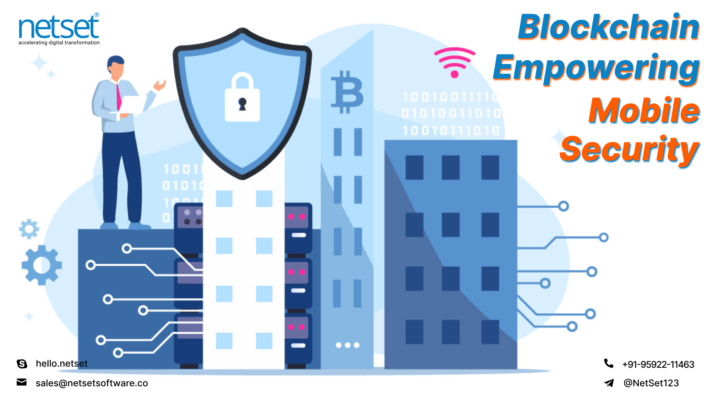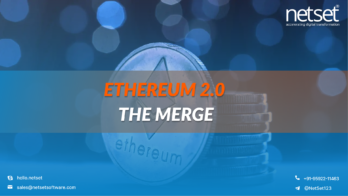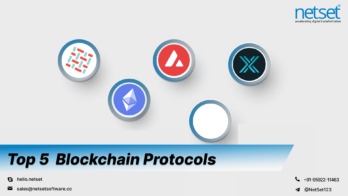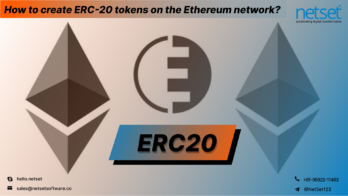“Each technology has its Pioneers!”
Technical advancements can hardly be stopped and in the near future, technology will become more and more powerful and useful for our everyday life, undoubtedly. Businesses today, irrespective of the niche, strive to offer no less than revolution.
Gone are the days when Blockchain used to better resonate with Bitcoin and Cryptocurrencies and here it is making breakthrough ventures and is steadily expanding its reach in the unconventional boundaries.
The Mobile Development Industry sees no exception!
We all know the pool of diversification that the Blockchain technology offers to enterprises and are aware of its real-life applications being implemented in distinct spheres of work.
Blockchain:
Known as the technology behind cryptocurrencies, keeps a record of everything that is happening and includes a verification algorithm to ensure the reliability of the information.
This is the simplest form that can define this robust technology.
Next, when the talk transitions towards mobile security with blockchain, many companies using blockchain consider it as an inevitable need for security systems to incorporate blockchain solutions to counter mobile security threats.
It’s all about Data Storage and Security!
The integration of Blockchain in smartphones and mobile applications is expected to take a step closer to mobile security, thereby, eliminating the need to use third-party applications.
Certainly, sufficient security measures need to be ensured to secure the entire value chain when interacting with a blockchain platform.
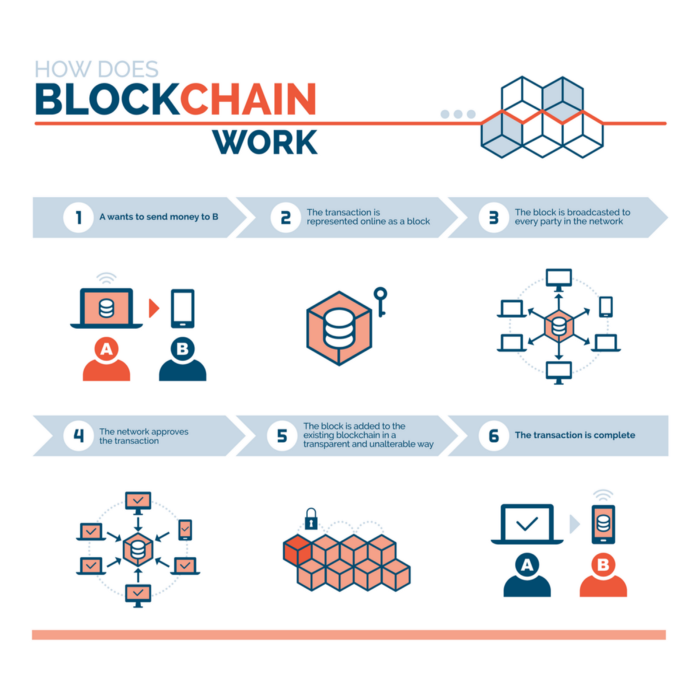
Mobile Security with Blockchain
People rarely know the actual benefits of blockchain in the context of security and believe that relying on anti-viruses, a smartphone, or an e-device can be protected against data threats. Nevertheless, it isn’t that feasible as it seems.
“A third-party software is not worthy enough to tackle a smartphone’s security ambiguities and authenticity clauses.”
Adding transparency to the use and access of data, blockchain offers secure financial scope and can be well engaged to some other security aspects which help to make a blockchain-powered mobile app more reliable and steady.
They are:
- Identity verification
- User-centric surveys
- DNS/PKI
- Process authorization (like in supply chains)
- Record Tracking (healthcare & real estate)
[Prefer Reading: “Top 10 Trends that Define the Future of Mobile Applications in 2020 & Beyond.”]
Blockchain’s Defining Properties
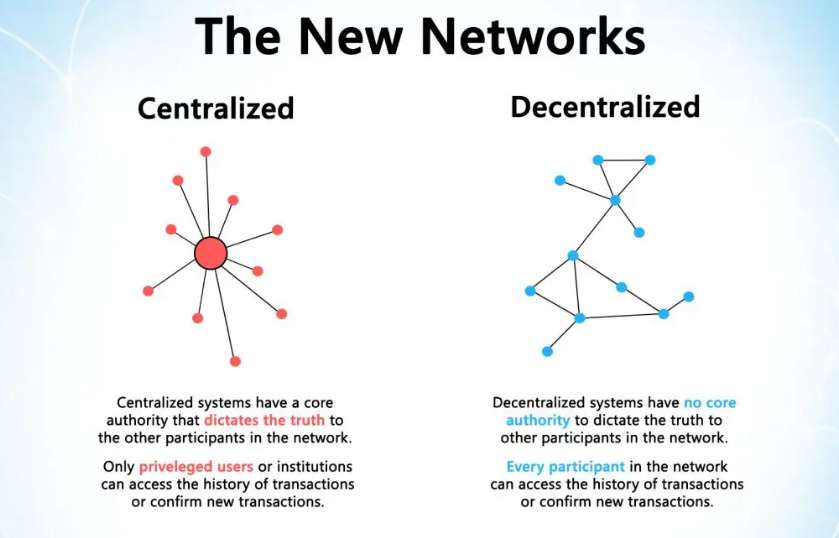
The newest bet technology has some properties that give dimension to the potential it has and what it can expand in the distinct business categories.
#Distributed Trust
Blockchain network is not governed by anybody, but al nodes participate in consensus for its appropriate functioning.
#Informaton Replication
Blockchain can be assimilated to a distributed and protected database in which all participants have the information so that if someone loses it, it remains.
#Transparency
The information being shared with all the nodes is transparent about everything that happens in the network, allowing a total audit.
Anyone who tries to tamper with the data can be tracked and located easily.
#Security
As it is based on cryptographic primitives, the information is unalterable and the authorship and time of any operation is that has been carried out on the network can also be traced.
#Data Immutability
Once the information has been entered, it is not possible to modify it by any member of the network, as it becomes immutable.
Blockchain’s Roleplay
Not every mobile application would see blockchain as an ideal security solution as it the aspect and motive of building the application totally proportionate to this idea.
Say, a mobile app dealing with cryptocurrencies can make the best use of the technology, however, not necessarily every online app embedding the functionality of money transactions can rope into the blockchain.
Blockchain technology gained huge popularity as a major tech disrupter but many times in specific industry spheres it witnessed a fallen faith due to the massive hype and irrational exuberance driven largely over the Bitcoin concept.

Besides this, many businesses had a great focus on developing and utilizing this robust technology to solve real business problems, thereby, rendering value to the end-customer. The blockchain serves the mobile app development industry as a pragmatic solution and adds advantages defined and perceived.
Let’s become familiar with some crucial factors that must be considered before Blockchain is used as a protective layer for your mobile application.
#Diverse Platforms, Secured & Decentralized
A decentralized platform offered by blockchain acts as safe for storing crucial information and prevents data loss and threats. Certainly, decentralization on diverse platforms prevents cyber attacks on mobile phones and is a long-term strategy to build power-pack resistance for accessing information by unauthenticated users.
The environment offered by blockchain development empowers app development by enabling users to gain complete control over the domain records which further makes it impossible for anyone to interfere with user entries.
#Security Features
Keeping user data safe and secure and knowing that the data will not be breached gives an upper hand to blockchain development.
This technological advancement maintains data transparency and protection in the mobile platforms as everything is made public and every data entered is made sort of general knowledge.
#Identity Protection
With blockchain, one can be assured that there is relatively nothing to hide. Anyone can anytime view data fed to the block but not everyone can alter it. This major trait becomes the reason for fo its tremendous adoption to enhance mobile app security.
Additionally, when the work is to be done on a decentralized database, assigning private key encryptions to users makes modification, hacking, and misuse of information almost impossible.
#No Password Requirements
Protecting mobile phones and applications with robust complex passwords is an obvious scene commonly witnessed amongst all of us. But applying the best-secured passwords hasn’t stopped hackers from a data breach.
This is when developers look upon efficient blockchain service solutions via mobile app development to get rid of hefty passwords offering security with SSL certificates where transactions are accompanied through a distributed network that ensures outright transparency.
[Prefer Reading: “Blockchain: What it Holds for Businesses Today?”]
Blockchain Well Applied in Distinct Spaces

Although Blockchain data management is rigid and powerful, it still needs to mature in order to exploit its full potential keep up the pace with the everyday tech innovations, there are many projects that are applying it in a multitude of fields.
Some of them are:
-Supply Chain
The logistics industry is one of the best adapted to the application of Blockchain in its processes. An example of them is the Blockchain Food Safety Alliance created by IBM and Walmart in China to ensure safety in the food sector.
-Smart Cities
Smart cities, based mainly on new technologies and the Internet of things (IoT), are a reality. In this sense, Blockchain is increasingly present in these cities of the future.
An example of this is the case of Taipei, in which a mesh of light, humidity, and pollution detection sensors has been deployed that transfer their data to a Blockchain network that will help optimize the city’s processes.
-Mobile Payments
The great relationship between cryptocurrencies and Blockchain technology has made one of the main applications that are already operational in mobile payment. Many cryptocurrency wallets already allow it and it is expected that in the future we will be able to make all kinds of transactions and payments.
-Digital Identity
The Swiss municipality of Zug, in collaboration with two companies, has created an electronic identity system based on Blockchain. Through a mobile app in which your data is entered and validated, the payment of fees, access to municipal services, and in the future electronic voting is allowed.
[Prefer Reading: “How to Use Blockchain in Developing Video Conferencing Apps like Zoom or Google Duo?”]
